Welcome back to another week of Analytics Advantage! This week, we are continuing our deep dive into player performance by focusing on Fantasy Points Per Game (FPPG) z-scores—a key metric that helps define fantasy hockey success. Unlike our previous analysis of 60-minute rate metrics, this week we shift our attention to how players are performing relative to their peers by examining their FPPG z-scores. These z-scores offer a clear view of a player's contribution compared to the league average, providing valuable insights into who is truly excelling in their fantasy production.
Why Revisit FPPG with Z-Scores?
As we've mentioned before, FPPG is important because it provides a clear measure of a player's average fantasy output per game, making it a key indicator of consistent performance. However, while FPPG gives us a snapshot of individual performance, it doesn't always tell us how that performance stacks up against the rest of the league. This is where z-scores come into play. By adding z-scores to our analysis of FPPG, we can see how a player's performance compares to the league average. A positive z-score indicates that a player is outperforming the average, while a negative z-score suggests they are lagging behind. This relative perspective is crucial for identifying players who are truly excelling or underperforming in a broader context, allowing fantasy managers to make more informed decisions. Z-scores also help to normalize differences across the league, such as varying scoring environments or shifts in overall player performance. By considering both FPPG and its corresponding z-score, we gain a more nuanced understanding of a player's value, not just in isolation, but in comparison to the competition they face every night.
Data Sources
The data for this analysis was sourced from player statistics spanning the 2019-2024 NHL campaigns, obtained from NaturalStatTrick.
Data Processing
Player statistics from the 2019-2024 campaigns were combined into a single dataset, then filtered for players who played at least 10 games in each year to ensure a significant amount of playing time.
Highlighted Players
In this analysis, I calculated an improvement ratio over the past five years to identify which players have shown the most significant growth in their FPPG z-scores. By using this ratio, I was able to pinpoint players who have not only improved but have done so in a meaningful way that impacts their fantasy value.
From this group, I've selected the best and most informative graphs to showcase. These graphs highlight players who have demonstrated notable trends in their performance, whether through consistent improvement or by emerging as key fantasy assets. By focusing on these key examples, we can gain a deeper understanding of the trends shaping the current fantasy landscape and identify potential targets for your fantasy hockey leagues.
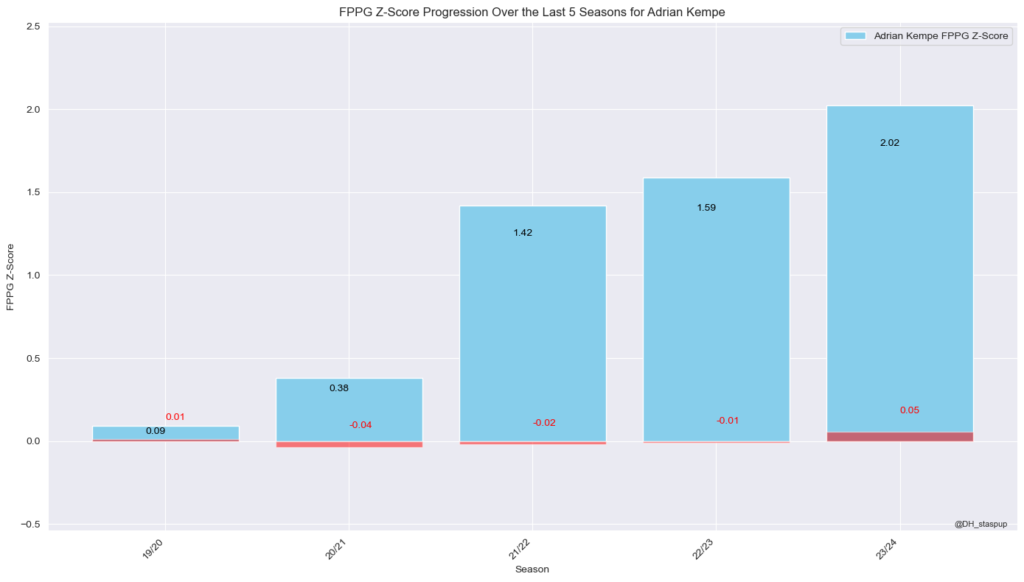
Kempe is expected to maintain his strong performance into 2025, remaining one of the Kings' most reliable offensive weapons.
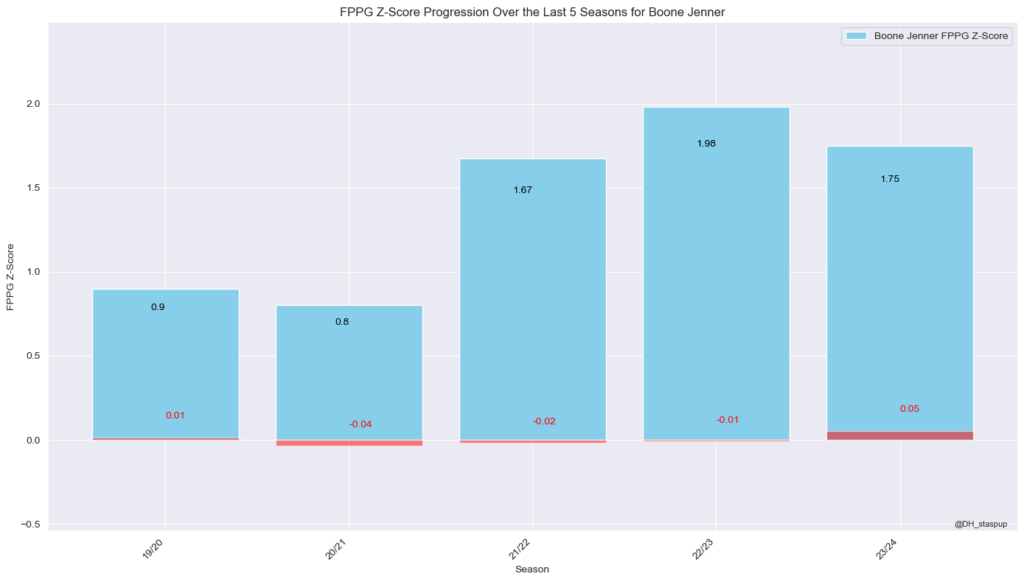
Jenner has been a consistent contributor, but with Columbus's focus on building around its emerging prospects, his future with the team may be uncertain as they redefine their identity.
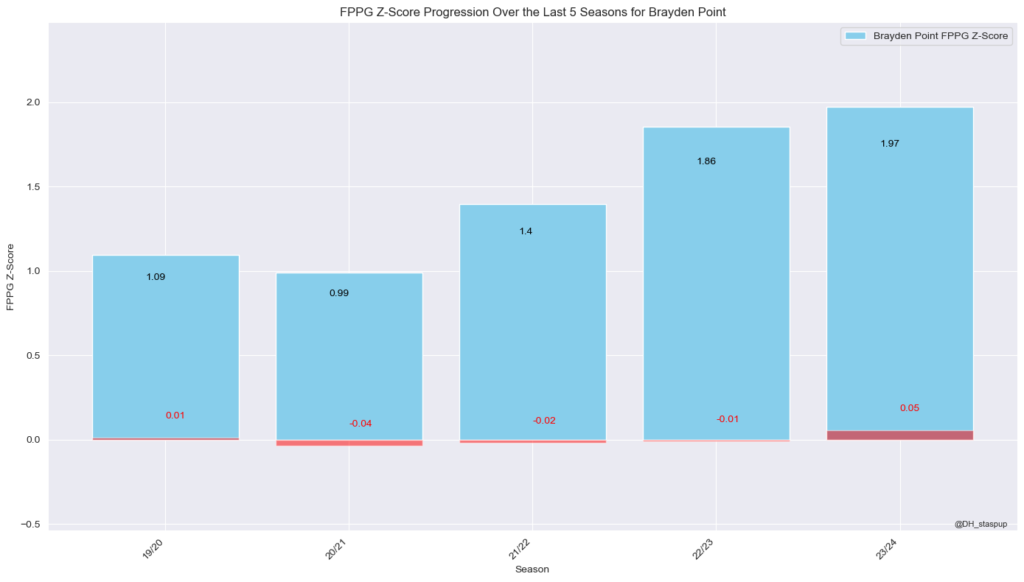
Point is set for another dynamic season in 2025. The departure of Steven Stamkos and the addition of Jake Guentzel will create an interesting shift in Tampa Bay's offensive dynamics.
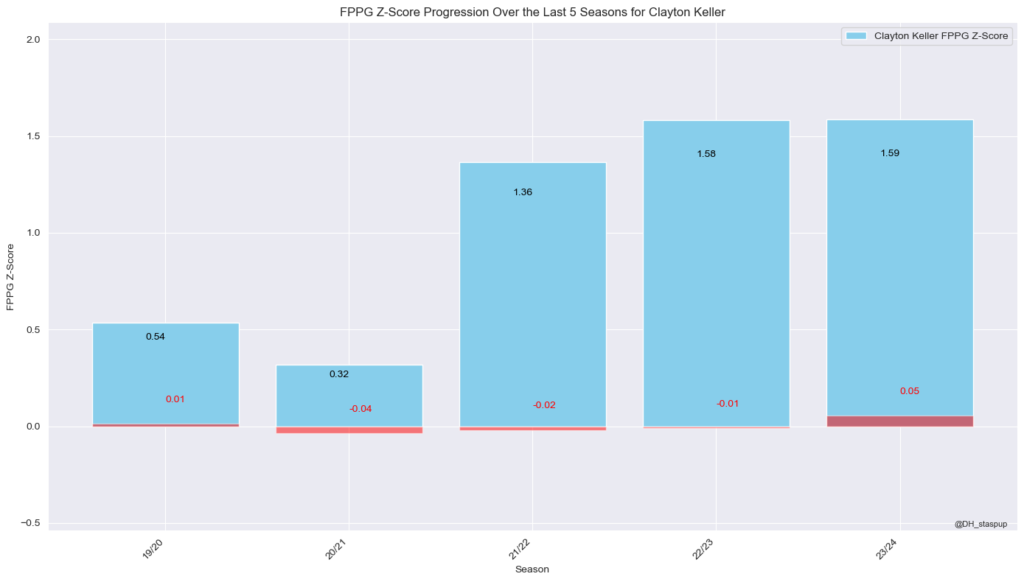
As the star of the newly relocated Salt Lake City team, Keller will look to continue his upward trajectory, making the most of his prime years.
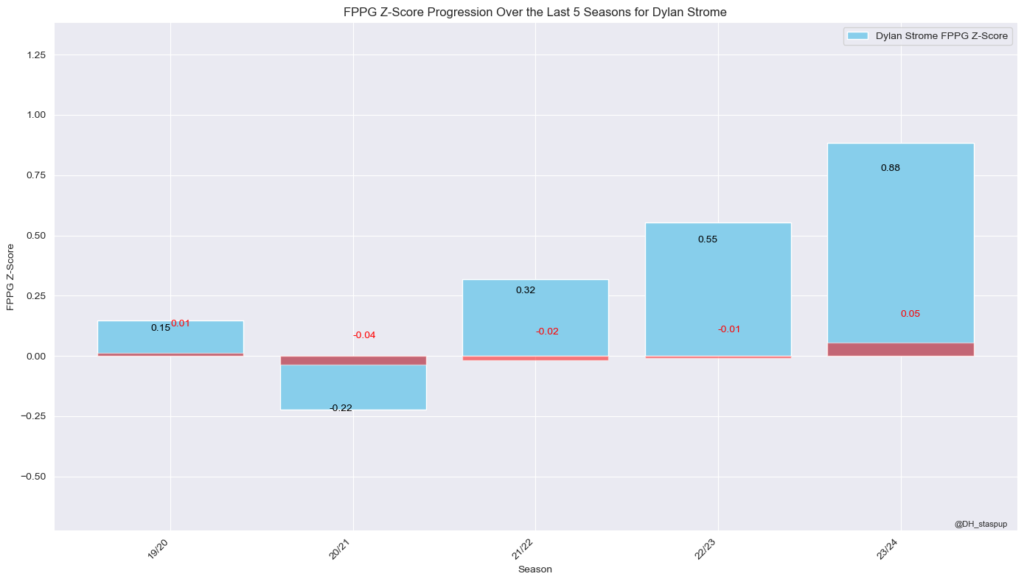
Strome is coming off a career-best 67 points (27G, 40A) and aims to maintain this level of production. His success will largely depend on how well the Capitals perform as a team.
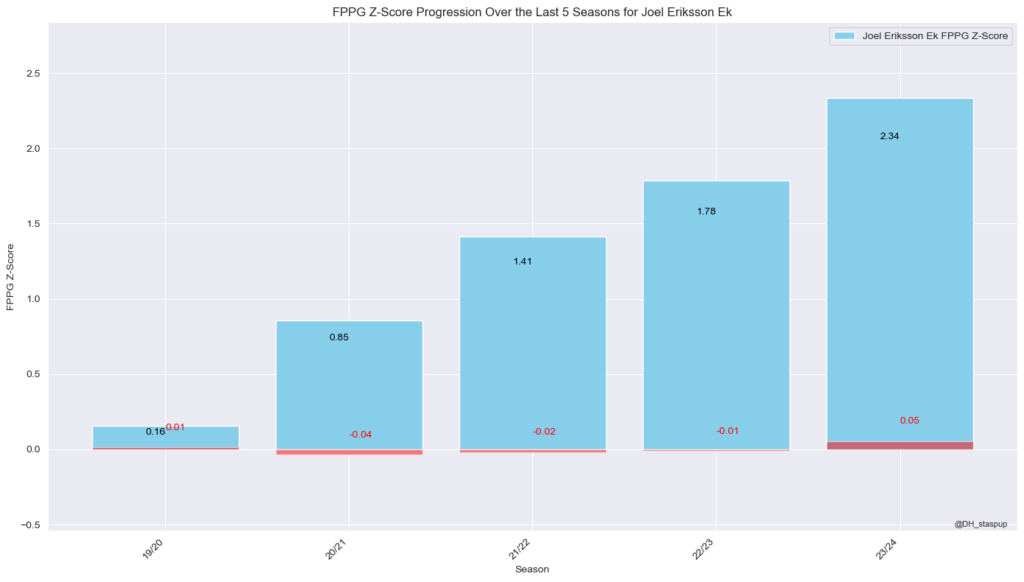
In 2025, Eriksson Ek is poised to lead as Minnesota's top center. With superstar Kirill Kaprizov and ample power-play time, Eriksson Ek has every opportunity to surpass his 2024 totals.
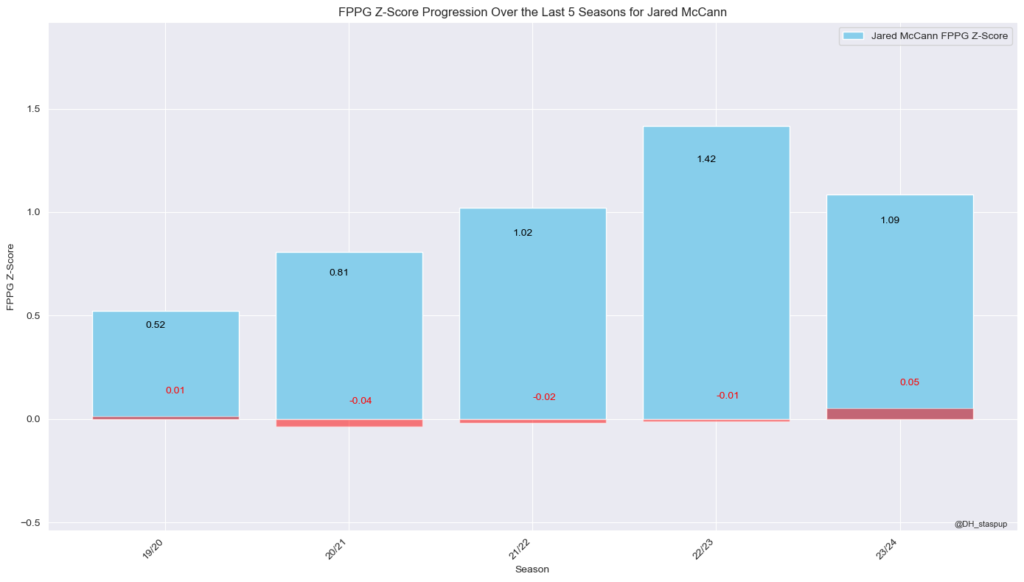
McCann is positioned for a potential rebound after a somewhat down year. As the team around him improves, he should find more success on the ice.
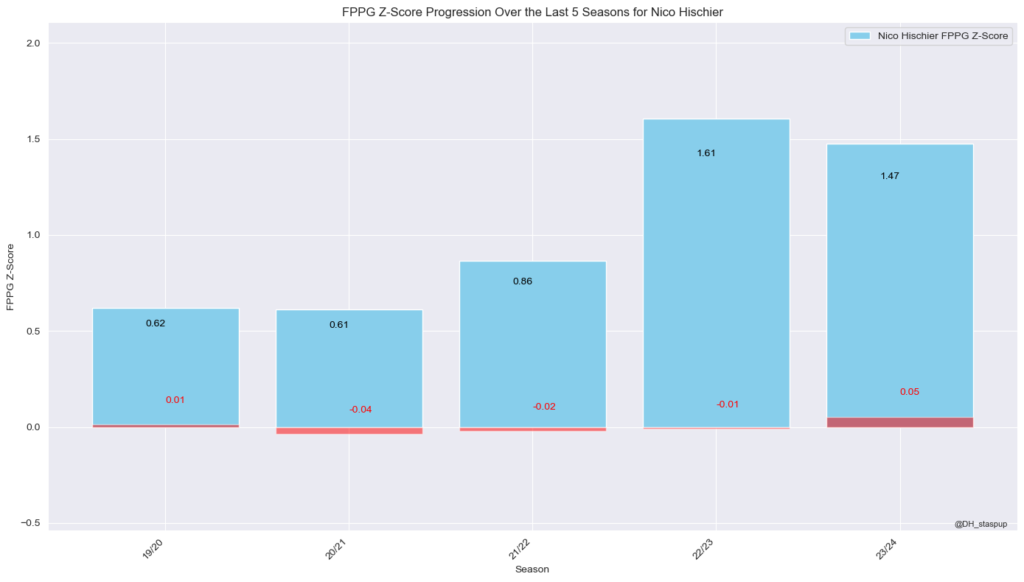
Hischier is a key asset for the New Jersey Devils, and if he stays healthy, he should have no trouble replicating his previous strong performances, making him an excellent fantasy option.
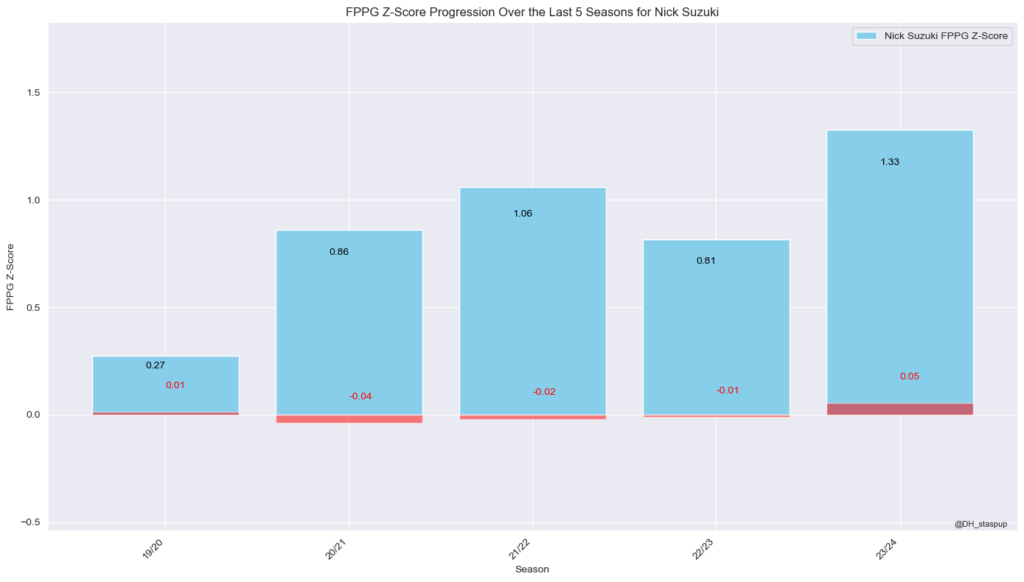
Suzuki is a highly appealing pick, surrounded by skilled teammates in Montreal. With the potential for an offensive surge, Suzuki could see significant fantasy value this season.
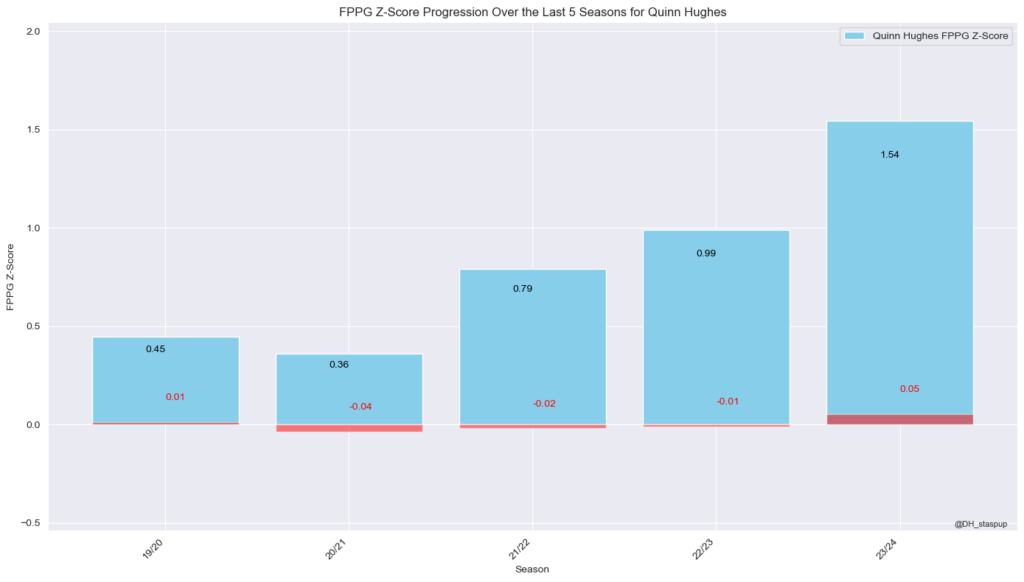
Hughes remains one of the top fantasy defensemen in the league, with no signs of slowing down heading into 2025.
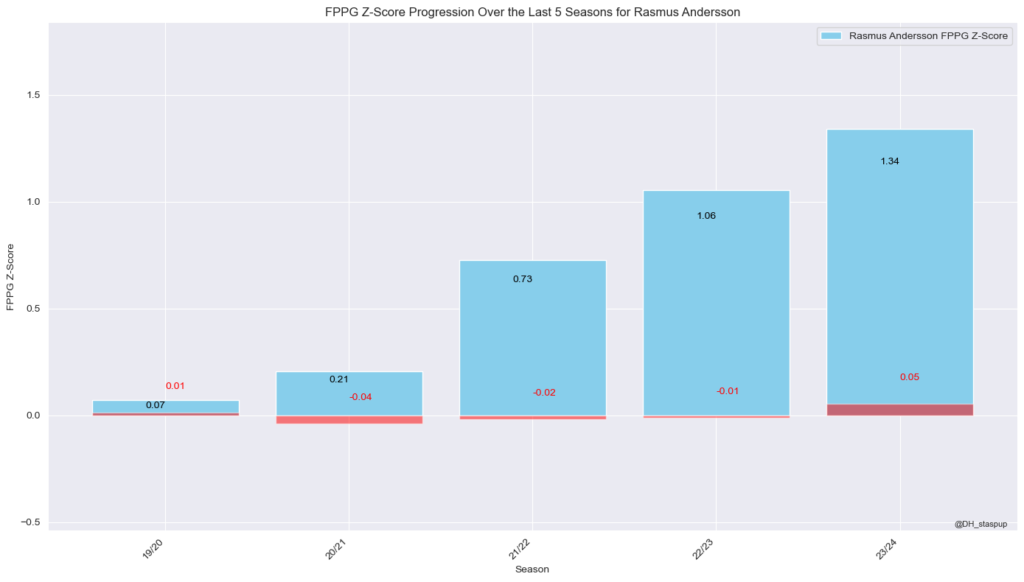
Andersson could provide substantial value if he secures a spot on Calgary's top power play. However, with some uncertainty surrounding his role, he might be a smart pick once his situation becomes clearer.
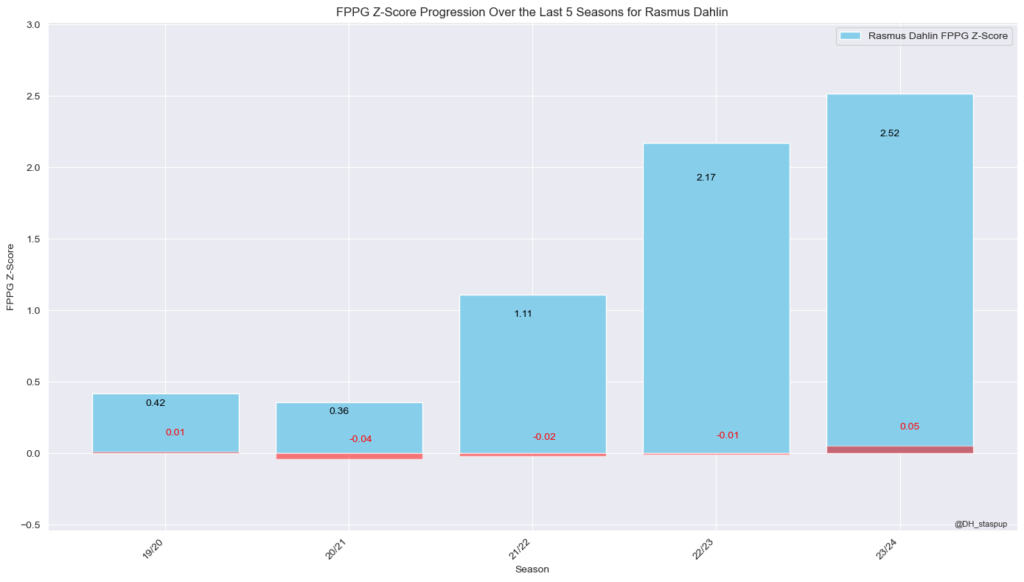
Dahlin is another premier defensive option, offering comprehensive value across all fantasy categories. He's a must-have in any league.
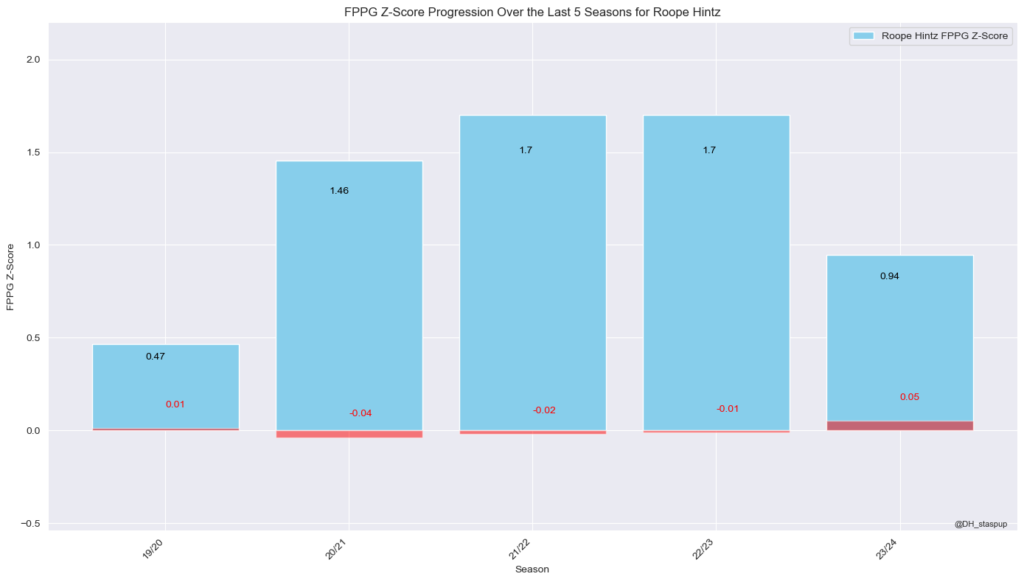
Hintz is a reliable forward option, likely to match his previous totals as the Stars continue to be a formidable force in the Western Conference with no major offseason losses.
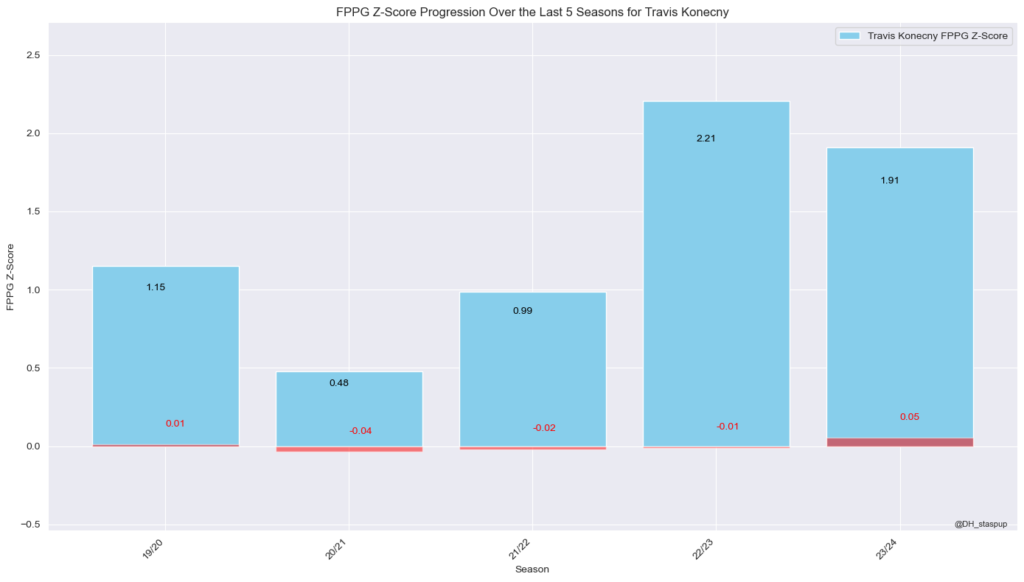
Konecny is set for another strong season, especially with Philadelphia's roster becoming more skilled and offensively potent. The integration of generational talent Matvei Michkov will be a storyline to watch.
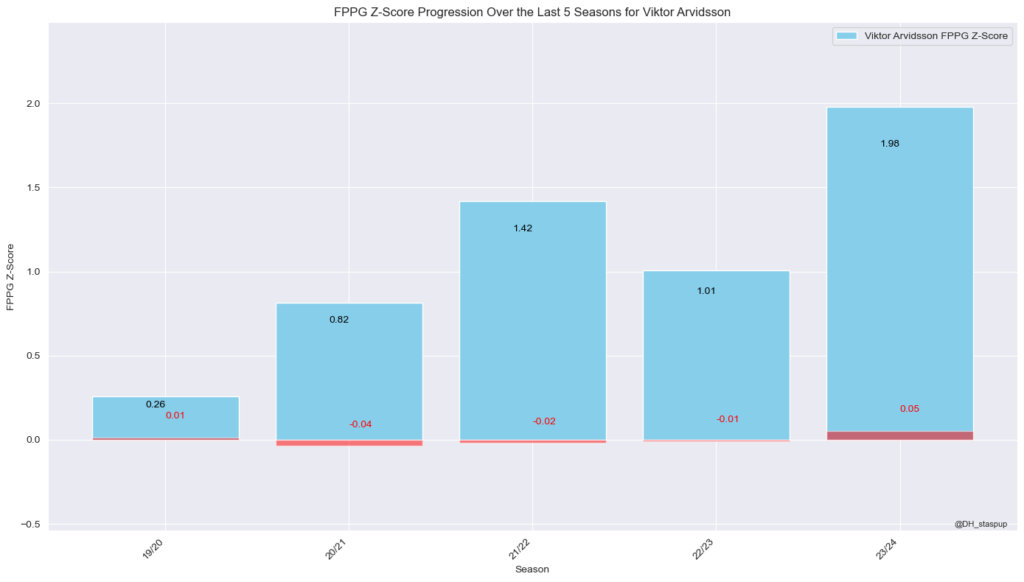
Arvidsson is expected to thrive in Edmonton's explosive, high-scoring offense, making him a valuable fantasy asset.
Thank you for reading, and have a great rest of your day! Twitter/X – @DH_staspup for any questions, corrections, or comments. Please feel free to ask for any player's graph—I can post it or DM.




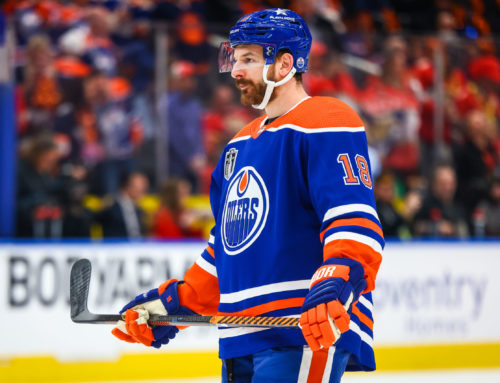
 EDM
EDM FLA
FLA CHI
CHI ANA
ANA L.A
L.A MTL
MTL PIT
PIT
